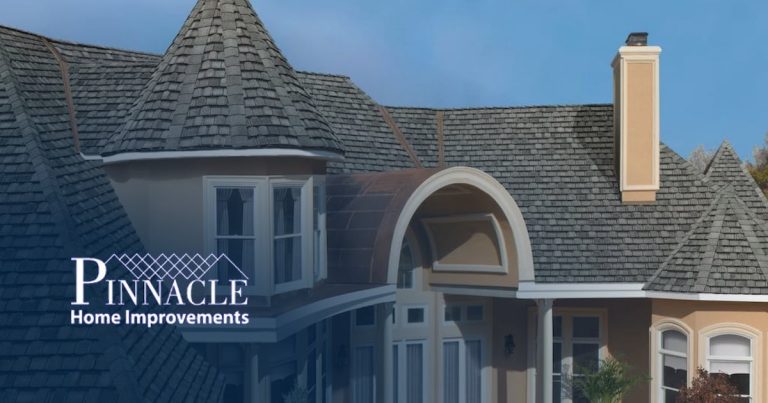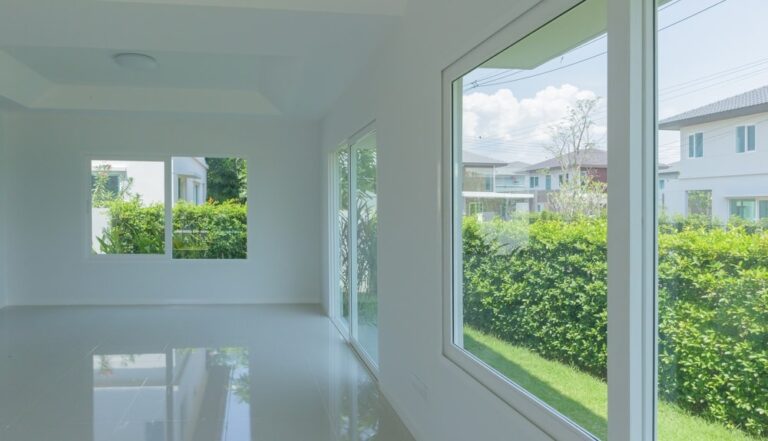When you have older windows that need to be replaced, you will want to choose energy efficient windows. It doesn’t have to be a chore that overwhelms you, but rather, one that lights the way to better home efficiency, beauty, and savings over the years.
Pinnacle Home Improvements is the trusted window replacement expert with a deep commitment to providing high-quality, energy-efficient window installation and customer satisfaction. We know that there are many things to consider as you look at your window options, and in this comprehensive guide, we aim to inform you to help make the decision process less daunting.
Understanding Energy Efficiency
Energy efficiency is simply the premise of using less energy to create the same results. It’s easier to understand when you look at one of the most important appliances in your home, the HVAC system. Out of all of your other major appliances, it uses the most power to help heat and cool your home.
When your home is no longer energy efficient, and old windows are certainly one of the biggest causes, then this vital piece of machinery needs to work itself overtime to get to your desired temperature. You’re essentially wasting energy in a continuous vicious cycle, though replacing your windows with new energy-efficient options will put that to an end.
Most older homes have single pane windows, which don’t do as good of a job for insulating the home. Newer windows that are energy-efficient have multiple panes and provide better insulation. Making this swap provides added comfort year-round, lower energy bills, and will prevent you from overworking your heating and cooling system.
Once you replace your windows with these energy-conserving windows, you’ll significantly reduce your energy bills since air drafts won’t cause your heated or cooled air to be compromised in your home.
What makes windows energy-efficient? Several factors contribute to making them adept at saving energy, including Low-E coatings, proper window U-factor ratings that limit heat transfer, the presence of non-toxic argon gas between your window’s glass panes, and warm-air spacers to better maintain insulation for the entire window frame. If your windows are older, they will not have these qualities that help preserve energy and should be upgraded to more efficient window options.
Signs That You Need to Replace Your Windows
When trying to determine if you need a window replacement, there are certain signs that will indicate the need for this essential home upgrade. Knowing when window replacement is necessary will help you take the next steps. What signs indicate that your windows need to be replaced?
You Have Window Drafts
Window drafts let cool air blow inside your home from outside when the windows are closed. If you stand near your closed windows and feel air blowing in from around the edges, then the sealing around your windows is no longer doing its job.
There are many tests you can conduct for air leaks on your own to determine whether you have air drafts. On a cool day, dampen your hands and hold them near the window edges. It will help you easily feel a draft if there is one. You can also close a dollar bill into the window, then try pulling it out. If that dollar bill slides out with ease, it indicates that your windows are letting in air leaks.
You’ll want a professional to assess the extent of your leaks. While they can come from other areas of your home, the windows are one of the most crucial areas to insulate and help protect your home. The longer this goes on, the less energy efficient your home will be.
Visible Damage
Every homeowner should make a practice of examining their windows annually. When you take these steps, you will need to look for any cracks, gaps, or peeling paint on the frame. Spotting these signs means that your home is experiencing energy loss from your windows.
Condensation or Fog on Windows
Do you frequently see condensation or foggy glass on your windows? The window panes shouldn’t have this excess moisture buildup. This typically indicates a broken seal that is allowing moisture into the interior of your home.
Windows that have condensation of cloudy glass are not properly insulated. This issue can also cause additional problems that will lead to expensive damage. Excess moisture can cause mold growth and wood rot, which will damage the frames. If your windows are doing this, now is the time to start planning your window replacement.
You Hear Noises from Outside
There are no completely soundproof windows, though when you have an insulated, energy-efficient window, you will not hear outside noises so vividly inside your home. Single pane windows, which are common on older homes, are not adept at noise reduction. If you can hear every single sound in your neighborhood, replace your windows and you’ll enjoy a greater sense of peace and quiet in your home.
Difficulty Opening and Closing Your Windows
Your windows should easily glide open or shut with minimal effort on your part. If you struggle to open or close them, the seals are likely worn out. This isn’t just an inconvenience when trying to open the windows for fresh air or shut them to secure your home. It also is a major sign that your windows lack insulation and are in dire need of an upgrade.
Higher Energy Bills
Every homeowner is concerned about keeping their energy bills reasonable. When those bills keep rising even though the electric company hasn’t increased their rates and you have not done anything to consume more energy, your windows are the most likely culprit.
Windows that lack energy efficiency will make your HVAC system work harder to heat or cool your home. Coupled with air drafts, it’s essentially like heating and cooling your neighborhood. You’re wasting money, and you’ll be causing more wear and tear on your system, which could lead to a costly breakdown at the worst possible time.
If your windows exhibit one or more of these signs, it’s a good idea to reach out for a consultation. We can evaluate your windows and help you take the next steps to replace them with energy-efficient options that enhance your home’s beauty and functionality.
8 Benefits of Energy-Efficient Windows
There will come a time when you can’t put off a window replacement any longer. While it is an investment into your home, you will get many more benefits by making this upgrade.
1. Greater Cost Savings and Less Energy Consumption
By far, one of the best benefits of installing energy-efficient windows is that they reduce your energy consumption. In turn, that serves to reduce your energy bills. With properly insulated, energy-efficient windows, they will retain the ambient temperature in your home rather than let it leak out or let air from outside into your home. This lets your heating and cooling system work more efficiently, which results in those lower energy costs.
2. Lower HVAC Costs
An HVAC system that has to overcompensate to keep a home heated or cooled will use up more energy. That means your consumption will cause your bills to rise. It also causes another problem by forcing this system to work harder to create the same output. As it does, it takes on more wear and tear, and will be more likely to have problems with major components. Replace your windows and you’ll also be safeguarding this appliance and preventing the need to replace it before the end of its lifespan.
3. Greater Comfort in Your Home
Windows that are energy-efficient will help you to keep the interior temperature at your desired comfort level in any season. You will finally be able to stop bundling up with added layers indoors during the winter or feel sweaty and hot in the summer. When you feel comfortable at home, you can truly enjoy your life.
4. Reduced Condensation and Noise
Insulated, energy-efficient windows will help prevent condensation that forms from the contrast in indoor and outdoor temperatures. By keeping it from developing, you’ll keep moisture out of your home, and keep mold out along with it. The added insulation also serves to keep your home more peaceful and quiet. Outside sounds will be dampened, allowing you to work, read, rest, or enjoy a family meal without disruption.
These energy saving windows will make an even bigger difference if you live on a busy street, near a park or playground, or have neighbors that you hear in their yard. You’ll only be wishing you took on this home improvement project sooner once you realize how well they reduce noise.
5. Better for the Environment and Your Property Values
If you want to help the environment, it all starts at home. Reducing your carbon emissions helps you lower your carbon footprint. You’ll be consuming less energy and making a difference. Additionally, there is the benefit of enhancing your home’s appearance. Older windows can make your home look outdated. By reviving it with a new look that provides energy efficiency, it will boost its curb appeal and value. If you plan to move someday soon, you may be able to get a higher resale price for making this simple investment into your property.
6. UV Protection for Your Interior
Single pane windows tend to let the most harmful rays of the sun into your home. Repeated exposure can fade your furnishings. From your sofas and rugs to your cherished artwork and family photos, the sun’s unflinching rays will degrade these items. Energy efficient windows block these rays, allowing you to open your window shades, curtains, and blinds and welcome natural sunlight into your home without worry.
7. Less Maintenance
Older windows need greater care, which translates to added maintenance. In time, nothing you do, such as replacing the weatherstripping, caulking, or sealing, will help them function right. Add in these new energy-saving windows and you’ll have very minimal maintenance to keep them in prime condition.
8. Government Incentives
Check for government incentives and rebates on your windows, especially with Energy Star windows. You may save even more with available offers, which can make it even more beneficial to make this upgrade to your home now.
Energy-Efficient Windows Buying Guide
Most homeowners have never had to replace their windows before, and they often feel overwhelmed when faced with the process. This guide will help to explain what features energy-efficient windows have that will help you save more money in the long-run and improve your home.
Here are the features you’ll see on modern, energy-efficient windows:
Types of Energy-Efficient Windows
Choosing energy-efficient windows begins with deciding on a type of window. While choosing the style is important for the look of your home, there are crucial factors to consider. Double glazed windows or triple pane windows are a great choice, and each will help you improve your home’s energy efficiency.
Both double pane and triple pane windows feature multiple layers of glass that have a spacer set between them. Within this space, it holds a non-toxic gas, usually argon or krypton, which provides added insulation. Double pane windows will have two layers of glass with one gas fill while triple pane windows will have three layers of glass with two gas fill sections.
Since there are more materials involved with triple pane windows, they will be the more expensive choice. They will be worth the additional investment if you plan to live in your home for many years to come, though you can still get proper insulation and improved energy efficiency from double glazed windows. Whether double pane or triple pane, the entire window unit is referred to as an insulated glass unit (IGU) designed to better insulate your home.
If you’re not sure which is the better fit, think of your window orientation. If you have any windows that face east or west, live in a frigid climate, or your neighborhood is a bit on the noisy side, triple pane windows will provide greater advantages. It’s also possible to add triple pane windows only on the points of your home that face east or west and use double glazed windows on the other openings. This allows you to custom-craft your insulation efforts with maximum return on your investment and comfort. They come in many designs, shapes, glass cuts, and interior and exterior colors, and we’ll be happy to show you all of your options.
Material Considerations
In addition to choosing between double pane or triple pane windows and the vast array of styles, you will also need to think about the window frame materials. Some materials are better at energy efficiency than others. Vinyl and fiberglass are among the best options, though here is a quick look at the frame materials you’ll need to choose from:
Vinyl Window Frames
Vinyl is an excellent material for window frames because it provides good insulation, resists moisture and rot, and it’s very affordable. Vinyl is most commonly selected for window frames since it provides the right balance of performance and affordability.
Fiberglass Window Frames
Fiberglass window frames are very durable and provide excellent thermal resistance. They will help you have a more energy efficient home. Another advantage of this material is that it resists warping, rotting, and damage caused by insects.
Composite Window Frames
The advantage of composite window frames is that they take the best of other materials to create the ultimate frame material. If you’re fond of wood’s aesthetic but don’t want to deal with the added maintenance, composite frames allow for that by providing the look you want with similar durability to that of fiberglass or vinyl. This material can also provide greater energy efficiency and longevity, though it is a more expensive option.
Wood Window Frames
Window frames made from wood are energy efficient, particularly when they are sealed properly and contain Low-E glass. On the downside, wood notoriously needs more love through maintenance to prevent moisture damage, making it a less durable choice.
Aluminum Window Frames
Aluminum is not the best choice for a material in window frames. They have a high conductivity, though in warmer climates if they are equipped with a thermal break, they can reduce heat transfer, and may be a viable option in those areas.
It’s worth noting that any frame material can be insulated, which allows it to provide additional protection for your home.
Window Ratings
When choosing energy-efficient windows, you also need to consider the window ratings when making your selections. Energy Star certifications make it easy to see which windows are energy-efficient. While that’s a significant first step, it’s essential to understand what the other ratings mean and how they can play a role in your decision.
U-Factor
The U-factor measures how well a window can prevent heat from escaping your home. When this number is lower, it means that it has better insulation and allows for less heat loss.
Solar Heat Gain Coefficient (SHGC)
Solar heat gain coefficient (SHGC) measures the ability of how well a window can block the heat from the sun. A lower SHGC rating means that it is better for reducing heat gain in a hotter climate. If you live in a colder climate, you will want to look for windows with a higher SHGC to enjoy passive solar heating.
Visible Transmittance (VT)
Visible transmittance measures how much visible light comes through the window. The higher the VT rating, the more light will enter your room while lower ratings can help you reduce solar heat gain and glare.
Air Leakage
If you’re going to the trouble to replace your windows, you will want to look at how much air can potentially leak through it. The lower the air leakage rating, the better it will be at helping you insulate your home and improve your energy savings.
Condensation Resistance
As mentioned earlier, condensation can cause major issues for your home. If you’ve had this issue before, you will want to look for windows that resist condensation. The higher the resistance rating, the better performance it will provide in preventing condensation from developing on and around your windows.
Low-E Coatings
Between the layers of glass, the gas fills, the frame materials, and the ratings, there is another way you can ensure you have energy efficient windows for your home. Low-E coatings are an excellent addition that reflect UV and infrared light, resulting in minimized heat transfer. Another distinct benefit is that you can enjoy opening your curtains to let light illuminate your room without worrying about fading or damaging our favorite decor.
Understanding How Proper Installation Plays a Role in Window Energy Efficiency
While energy-efficient windows are designed to bring great improvements to your home, the way they are installed is critical. It is imperative that you choose a professional and reputable window installation company. Only professionals with the right training and tools will be able to ensure they abide by manufacturer instructions for installations. Failing to do so would void your manufacturer warranty and make it a challenge to file a claim.
Equally as important, professionals will pull the right permits and follow all local building codes. There will be stringent requirements to follow and when you choose the right window installation company, you’ll be able to have full confidence that everything has been done right from start to finish.
Cost vs. Savings of Energy-Efficient Windows
You stand to gain many benefits from energy-efficient windows when you have them installed to replace your old ones. However, it is an investment you’ll be making into your home, and that will naturally come at a cost. While budget is surely a concern, you shouldn’t only focus on the upfront costs of this home improvement project. Instead, take a look at the bigger picture and how much it will save you on energy consumption through the years.
Upgrading your windows to energy-efficient windows help you stop wasting energy, which will lower your energy bills. Keeping a home well-insulated is the key to improve this metric, plus it will prevent causing excess damage to your heating and cooling system. Over time, the savings make this upgrade worth it, and since they enhance the comfort of your home as well, you’ll soon find it to be worth every penny. It will also enhance the look of your home, serving to improve its curb appeal. Along with added energy efficiency, you’ll command a higher value for your property, which is another great bonus.
Factors to Consider with Your Budget
If you’re wondering about the cost of energy-saving windows and their benefits, there are a variety of factors to consider. How much you’ll spend on this project will depend on the number of windows in your home, their size, the glass type, the window style, and the frame material.
When your budget is a bit tight but the project needs to be done quickly, you may want to first focus on the windows that would get the most sun. These are the windows on the east and west sides of your home. By upgrading those first, you’ll start improving your energy-efficiency. You can then prepare to replace the rest of your windows at a later date.
Homeowners planning to live in their homes for many more years should make the investment to start saving money on energy consumption. When windows are no longer efficient, it is much more difficult to control your indoor temperature. In winter, you may struggle to keep your family warm and cozy, while in summer, it may never feel cool enough in your home, causing discomfort, particularly at night when a cool sleep environment is needed for the best rest.
While other areas of your home will need insulation and may be leaking air, your windows are the biggest source of these air leaks. Make sure you don’t wait too long to address these issues with your home as putting it off will put more wear and tear on your HVAC system, and those repairs can really add up.
Environmental Impact of Energy-Efficient Windows
Wasted energy is not only a concern for your wallet but also a concern for the environment, and by making the switch, energy-efficient window savings are the benefit you get while helping create a positive impact for the world. When your windows are better at insulating your home and preventing heat transfer, they reduce your carbon emissions, reducing your carbon footprint and helping you become eco-friendly.
Additionally, it’s a hot topic for homebuyers who want minimal upkeep and to move into a home that doesn’t require tons of work to be done after closing. With energy-efficient, cost-effective windows, your home will be a more attractive option to those who are in the market to buy a home.
Simple DIY Improvements to Improve Window Energy Performance
Making energy-efficient window improvements is the best investment for your home. Until you are ready to take this step, you can try a few things on your own to help enhance window energy performance and cut down on some of your energy waste. The first step is in identifying the problem areas and putting your focus on those.
A simple DIY task is to use caulk around your window frames to seal any drafts. Make sure you remove any cracked caulk that has worn out first before applying a fresh layer. You can also use weather stripping on the bottoms of the windows to prevent these drafts.
Another option is to add reflective window film. This material helps limit solar gain, and it’s relatively inexpensive. Most homeowners can add this to their window panes themselves, and it serves as an effective way to improve energy efficiency until you can swap out your old windows for new, energy-efficient options.
Window coverings, especially insulated curtains or shades, can also improve insulation for your home. However, since they need to be closed to provide these functions, it may not be the best option as it will limit your natural light and make your home’s interior look dark even by day.
Boost Home Energy Efficiency with Window Upgrades Through Pinnacle Home Improvements
Energy-efficient window improvements can completely transform your home in both looks and energy savings. While replacing your windows is an investment, you can elevate the style and aesthetics of your home, giving you something to enjoy for years ahead.
A dark interior during the day isn’t very welcoming. Keeping your curtains shut tight will block your view and limit your natural sunlight. At Pinnacle Home Improvements, we have a wide array of energy-efficient windows that update the look of your home while enhancing its energy efficiency. Double or triple glazed windows are a fantastic choice that help minimize heat transfer to keep you comfortable, and our installation process ensures your satisfaction.
We provide the professional touch you need, even before we begin the work. Our team helps you review each option to find the perfect new windows for your home. Once you’ve selected your new windows, we can enhance window energy performance with the replacement process. Your old windows will be removed and disposed of properly, then the new ones will be added in accordance to building codes for installation. Every window will be tested and inspected to ensure that no detail has been missed in any step of this process.
From there, you only need to keep your windows clean from the panes to the surrounding frame area. Inspect them once per year to look for any gaps or cracks in the caulking and seal them up to help promote window longevity. Ready to boost your energy efficiency through a window replacement? Contact us today to get your free quote and learn more about our window options.
















